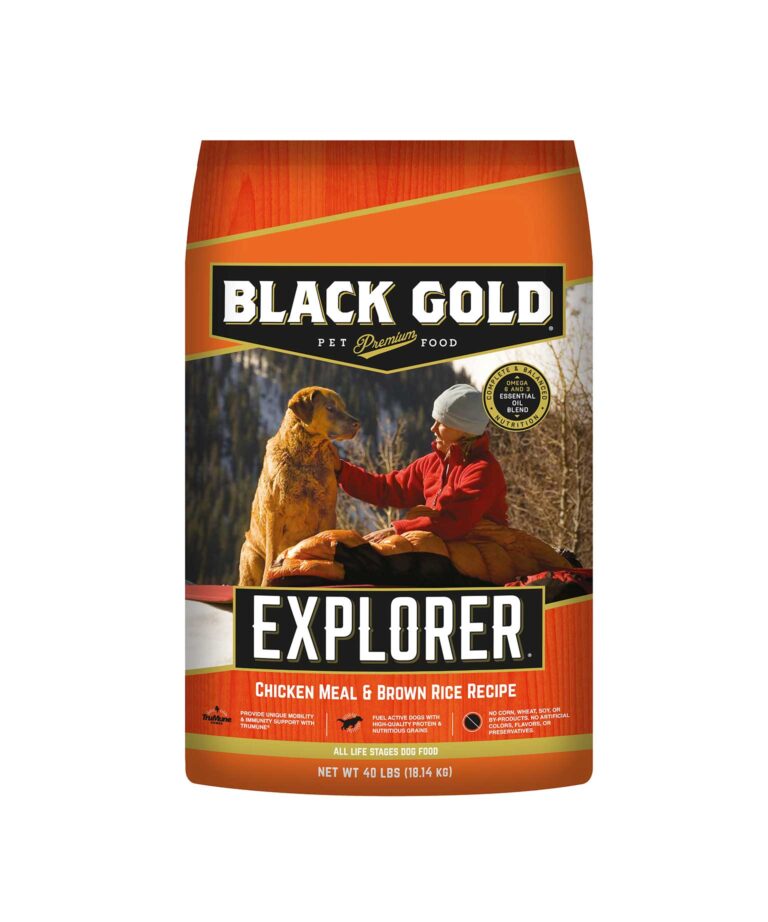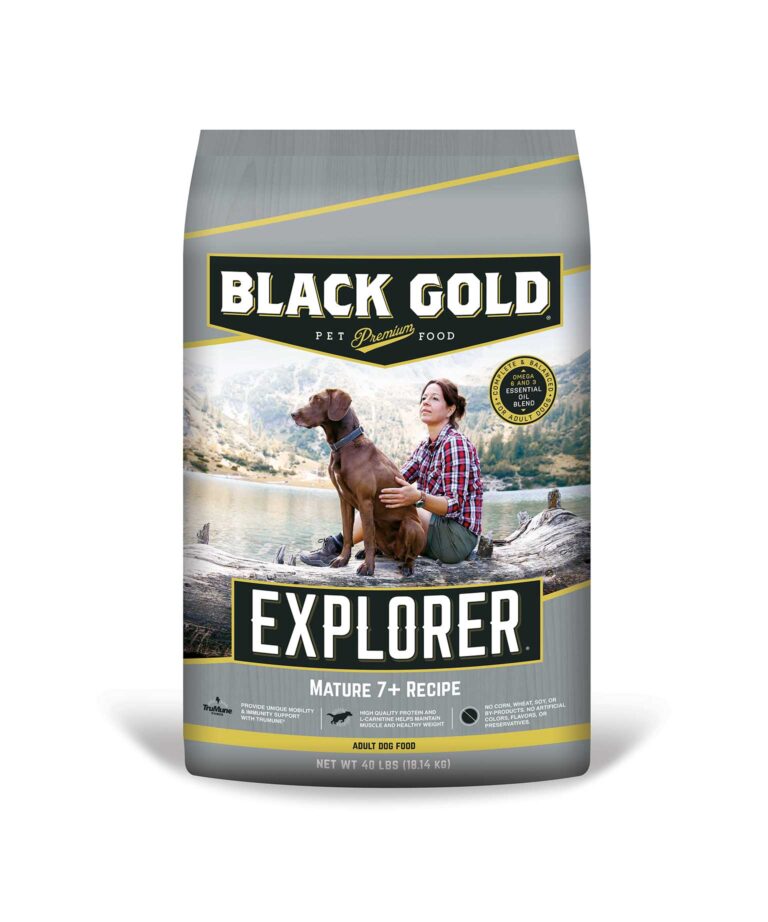Understanding Your Dog’s Digestive Health

We are what we eat — and that goes for our canine companions too. Because the gut is where food is digested, and 80% of your dog’s immune system lives in the gut, digestive health has a big part in your dog’s vitality and zest for adventure.
Your dog’s gut microbiome is the community of beneficial and harmful bacteria that reside mostly in the intestinal tract. Good bacteria aid digestion and the proper absorption of nutrients. Bad bacteria can cause temporary vomiting and diarrhea, chronic inflammation, and even dementia. Diet, infections and certain medications throw the gut microbiome off balance.
In One End and Out The Other
Here’s what happens inside your dog at chow time. Food is grabbed with the front teeth and pulled to the back of the mouth where the molars grind it up. It passes down into the stomach, where it can remain for up to 12 hours. It’s broken down into a nutrient-rich mush that moves into the small intestine, where nutrients are absorbed through the intestinal walls. What’s left over moves into the colon, which absorbs moisture to keep the body hydrated. Waste begins to form and take shape — and you know the rest.
The Scoop on Poop
You can tell a lot about a dog by what comes out of its back end. You might not want to, but you should know what your dog’s normal poop looks like. Note the color and consistency of your dog’s stools, how often your dog goes, and if it’s an effort. Knowing what normal looks like will help you tell when something is off.
Abnormal poops, copious gas, diarrhea, and vomiting are the sounds, smells, and sights that tell you your hound has eaten something they shouldn’t. Usually these symptoms resolve over a day or two. Sometimes a short 12-hour fast will do the trick. But if the signs persist, or they’re severe, you’ll need to call your vet. Your dog may need to be tested for parasites or viruses to determine proper treatment.
Did You Know:
Your Dog Gets Heartburn Dogs produce more stomach acid than humans do. This makes it easier for them to eat raw foods and why they may occasionally get heartburn. Your vet can recommend a dog-friendly antacid.
Your Dog Can’t Chew Sideways Dogs evolved from wolves, who mostly ate meat that was ripped off and swallowed. Their jaws only allow an up-and-down motion when chewing, instead of grinding.
Your Dog Can Digest Grains Their wild ancestors were carnivores, but domesticated dogs are omnivores. They don’t really need a lot of carbohydrates in their diet, but they have no problem digesting and absorbing them.
Your Dog Stores Food in Its Stomach Food remains there for up to 12 hours (human stomachs only hold food for around 30 minutes). Dogs evolved to go long periods without eating, so this allows them to convert food into energy as needed. Their stomachs can hugely expand to support this eating pattern.
Doggie Digestive Health
- Puppies: Your active puppy needs a nutrient-dense diet with highly digestible ingredients. Calcium, Vitamin E and fatty acids such as linoleic acid are important for healthy growth. Prebiotics will promote digestive health and feed the beneficial bacteria in their gut. Fiber is also important as it helps them form proper stools.
- Adult Dogs: Boost good bacteria in your buddy’s gut microbiome. Ask your vet about adding superfoods like sweet potatoes, eggs, berries, red and orange veggies such as pumpkin, white fish, and lean meats to their diet.
- Mature Dogs: Older dogs are prone to digestive issues as their bodies slow down. They need highly digestible food, with gentler proteins and more fat and fiber. Probiotics help to balance their gut flora and keep their digestive system running smoothly. Hydration is also important to assist in absorbing nutrients more effectively and get rid of waste.
Time for a Change? Whether it’s time to transition your puppy to adult food, or to support a change in digestive health, there will come a time when you need to switch out your dog’s diet. Read our guide for tips and a day-by-day schedule to do it without causing them stress.
Our formula for sensitive stomachs, Black Gold Explorer® Chicken Meal & Brown Rice Recipe, offers complete and balanced nutrition, with prebiotics and oatmeal for digestive support. Fuel your active dog with our high-quality protein and nutritious grains: order here.



